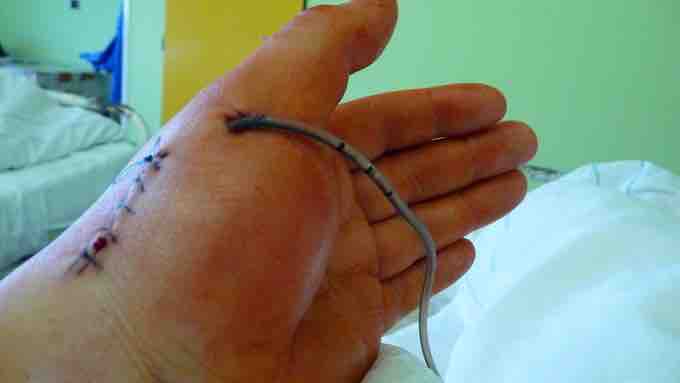Susceptible Hosts
A nosocomial infection, also known as a hospital-acquired infection or HAI, is an infection whose development is favoured by a hospital environment, such as one acquired by a patient during a hospital visit or one developing among hospital staff. Such infections include fungal and bacterial infections. They are aggravated by the reduced resistance of individual patients. Numerous risk factors in the hospital setting predispose a patient to infection. These risk factors can broadly be divided into three areas.
- People in hospitals are usually already in a 'poor state of health', impairing their defense against bacteria. Advanced age or premature birth, along with immunodeficiency (due to drugs, illness, or irradiation) present a general risk, while other diseases can present specific risks; for instance, chronic obstructive pulmonary disease can increase chances of respiratory tract infection.
- Invasive devices, for instance intubation tubes, catheters, surgical drains, and tracheostomy tubes all bypass the body's natural lines of defense against pathogens and provide an easy route for infection . Patients already colonized at the time of admission are instantly put at greater risk when they undergo invasive procedures.
- Patients' treatments can leave them vulnerable to infection: immunosuppression and antacid treatment undermine the body's defences, while antimicrobial therapy (removing competitive flora and only leaving resistant organisms) and recurrent blood transfusions have also been identified as risk factors.
Prevention
Hospitals have sanitation protocols regarding uniforms, equipment sterilization, washing, and other preventive measures. Thorough hand washing and/or use of alcohol rubs by all medical personnel before and after each patient contact is one of the most effective ways to combat nosocomial infections. More careful use of antimicrobial agents, such as antibiotics, is also considered vital. Despite sanitation protocol, patients cannot be entirely isolated from infectious agents. Furthermore, patients are often prescribed antibiotics and other antimicrobial drugs to help treat illness; this can increase the selection pressure for the emergence of resistant strains.

Surgical drain
Surgical drain on the left hand after surgery of Bennet's fracture basis MTC primi manus 1. sin (S62.20) which was treated by alignment of a fracture and inside fixation by two titanium screws MS.